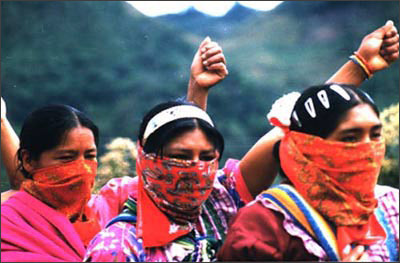
Hans Ulrich Obrist In Conversation with Antonio Negrin

Hans Ulrich Obrist: The last time we met was with Rem Koolhaas in 2001, and we spoke about what could be called your “city projects.” What are you working on related to this subject at the moment?
Antonio Negri: I can start by saying that while discussing the concept of the multitude, Michael Hardt and I found ourselves facing the question of the city, which we brought up as part of the question of the territorialization of the multitude, the space in which the multitude deploys itself.
To be honest, I think that while a number of problems started to clear up after we wrote Multitude, others remained in the shadow, like this fundamental question of space. For example, we are very interested in this problem of the multitude’s temporality, that is, of transformative moments and raising consciousness, or the problems that arise the moment we think about what it means to “make” multitude, to construct it as a singularity that tends towards shared, common projects. But the big problem we have yet to consider concerns space. Because we still require a place in which this multitude will exist—not only a network through which it communicates, but also the power to decide its living conditions. This power to decide plays a role in developing a relationship between the multitude and state structures or institutions, and from a negative perspective this means an uproar; from a constructive perspective it means revolution. Now we could say that today this space is the contemporary metropolis. Half of the world’s population, maybe more, now lives in cities. The population itself, we could say, is a refugee in these cities. In fact, we may now have one to two thirds of the world’s population living in cities of over one million inhabitants.
HUO: And these numbers rise every year!
AN: That’s right! And if the question of the metropolis is central, then in my opinion it is because there is a structure of the common that is specific to it. This structure could be described as the tension that exists between the demand for services on the one hand, and the withholding of these services, or the refusal to consent to this demand, on the other. The refusal endangers the demand, and the claims made to it. And this demand becomes more and more important. I actually believe that two processes are currently underway. The first is a definitive neutralization of the traditional working class, which has allowed for the distinct working-class space—the factory—to be destroyed. But it goes beyond this to something more general, because we could also say that this disqualification has marked the disappearance of the productive space as a clearly defined one. The second process concerns the illegal reconstruction of urban space, the spaces not controlled by anyone, that are constituted by successive waves of immigration and by extremely profound cultural mixes. And all this produces two vast, enormous spaces, where all the energy of work, of construction, of sociality and solidarity, is centered.
HUO: So we could say that these are two parallel movements.
AN: Yes, because they are both intertwined with forms of biopolitical control. It is clear that they are not simply processes of controlling the conditions or the organization of work, but rather of transforming living conditions in such a way that only work and its organization become important. So when we look at the metropolis, we find ourselves facing a dialectical movement unique to our time. But it is dialectic in a unique sense, because, in truth, these are processes that lead nowhere. These changes are made regardless of any communal frame. Each time we arrive in places shaped by these processes, we experience a sort of vertigo. I was recently in Caracas, where in a city of about seven or eight million people you have between seven and nine hundred thousand living in what we could call neighborhoods, or “defined” spaces, whereas about six or seven million people live in totally chaotic conditions.
HUO: And it isn’t even clear exactly how many people there are…
AN: Yes, we don’t even have a precise figure! When flying over the city, I was absolutely struck by seeing the city everywhere, absolutely everywhere! Meaning that from about 1200 meters above the ground, you can see only the city, and nothing but the city! Everything is occupied! And what’s more, the space is taken up by something that is totally wild, completely uncontrolled!
HUO: Could we describe this in terms of “self-organization”? Of a kind of development that evades all forms of planning?
AN: Yes, it’s completely self-organized. And in Brazil it’s the exact same thing.

HUO: You mentioned earlier that you have been traveling extensively in South America.
AN: Yes, I’ve traveled there especially often in the past couple of years. I must say that I completely agree with Niall Ferguson, who has said that the new political context the Bush administration was responding to was not one of large-scale terrorism engendered by the ongoing conflict in the Middle East—a situation that they themselves created—but the fact that, for the first time since the assertion of the Monroe Doctrine in 1823 Latin America was completely independent. And now, if Mexico votes Left, it will no longer be only Latin America, but Latin America and Mexico! I wrote a little book about this that was published in Brazil and in Argentina, called Glob-AL, where the A and L stand for America Latina. In this book, I consider the crisis of the ideologies of subordination and dependence, which were classic themes in the traditional theories of the Latin American Left, and I note that the goal has now become to theorize the interdependence, already constituted, of this new continental front. And all this goes hand in hand with the other emerging position, which considers Bush’s or the United States’ coup d’état to have failed. The next horizon we will have to prepare for is that of this continental pluralism—one that is extremely varied and passionate, but still poses a small problem for me, which is that we have yet to understand this problem in Europe. And I find this fact regrettable!
HUO: How do you see Europe in opposition?
AN: I don’t know exactly—I’m still consumed by all that happens there, and I haven’t reflected on this question properly. But if we return to this question of the metropolis, we can see that we’ll have to start by defining it as the place where the transformation of capitalism has, in fact, ruined its own tradition, in the sense that there is no longer any difference between industrial profit, real estate surplus, and financial structures. At the same time, the city has become a full-fledged productive element—and the metropolis even more so. We see that even the most intelligent men have always considered the city to be a positive externality, meaning that we consider the city to have established conditions in which industrial operations and processes could be organized, developed, and extended. But today the city, and the metropolis in particular, have become directly productive. And what exactly does this production consist of? I would say that it consists of the movement of people—it is in the construction of urban cooperation, in the liberty and the imagination of people who define and provoke it. Look at Brazil. They say “But there is so much misery…” And of course, it’s true! But I would respond, “Then go look what is in that misery.” Because there is an incredible capacity for creation in that misery, in those favelas. Music, human connections, and, of course, at times, deadly connections as well. But there is an enormous creativity that produces new things, and that creativity does not come without negative aspects. But the problem of murder and crime, and more generally the problem posed by the fact that certain expressions of this wild creativity are dangerous, is evidently the problem of order and disorder. And I never thought that this multitude could exist without order. Make no mistake: I have never been an anarchist.
HUO: Yes, we spoke about this the other day, when I mentioned certain urbanists who have reclaimed anarchist thought, and you said that you do not support anarchism in the cities under any terms.
AN: I am not an anarchist from any standpoint, regardless of the situation we find ourselves in. Based on forms of self-organization that are becoming more and more collective, I think there is a “common” that grows stronger and stronger. We always have to create institutions! But creating institutions also means creating forms of cities, because an institution is not a metaphysical representation or an ideal archetype! It is among other, concrete forms that the city has to be constructed, that the metropolis can constitute the common. And it goes without saying that I am not only speaking here of buildings! There are, of course, buildings, but there is also communication—the lines, the spaces, and so forth. Creating an institution means creating a public space.
HUO: Speaking of the nature of this public space, in Multitude you describe the ongoing obliteration of the notion of “exteriority,” which also seems to hint at the disappearance of the idea of a single center. But how is this applied concretely in the city? It seems to me that it is no longer a question of center and periphery…
AN: Well, we need to pay attention to this problem. It’s true that there is no longer a center, but it is also true that there is what we can call a “deviant” center. This, for example, is the American center that raises its head in times that are more and more aberrant. I have a lot of respect and sympathy for the democratic tradition of the United States, which is something very profound and something I am very fond of. Still, we can no longer ignore the harmful effects that the conservative and religious culture in the United States has brought about. It’s a very dramatic change, and its disastrous effect has been to isolate the libertarian experience of American culture from any form of global consciousness and even from its own capacity to intervene in the world while respecting people’s liberty. The export of democracy has been transformed into a new form of imperialism that has surpassed anything we could imagine! What’s more, it has produced a kind of imperialism that has been revealed to work against the interests of capitalism, which it was supposed to serve. That is the absurdity of the situation. So the big question is not about what we can do in a world that no longer has a center, but about knowing how the struggles for liberation—the liberation of people, anti-colonialism, anti-capitalism—and how the movement of the multitude, as the fundamental thing to which all other forms of struggle subordinate themselves, can redirect the processes of communication and rebellion. From this point of view I remain a dedicated Zapatista! There are ways in which the claims—the forms of organization and the institutional forms—will build themselves. Today there are still campaigns around this, and we have to lead these campaigns! It’s very clear, particularly here in France with the problem of the banlieues, and the problem of the European suburbs in general. These are problems that we are going to have to face very soon. Next year, I am thinking of transforming the seminar I teach at the Collège International de Philosophie into a sort of “nomad seminar” that will circulate among Parisian banlieues.